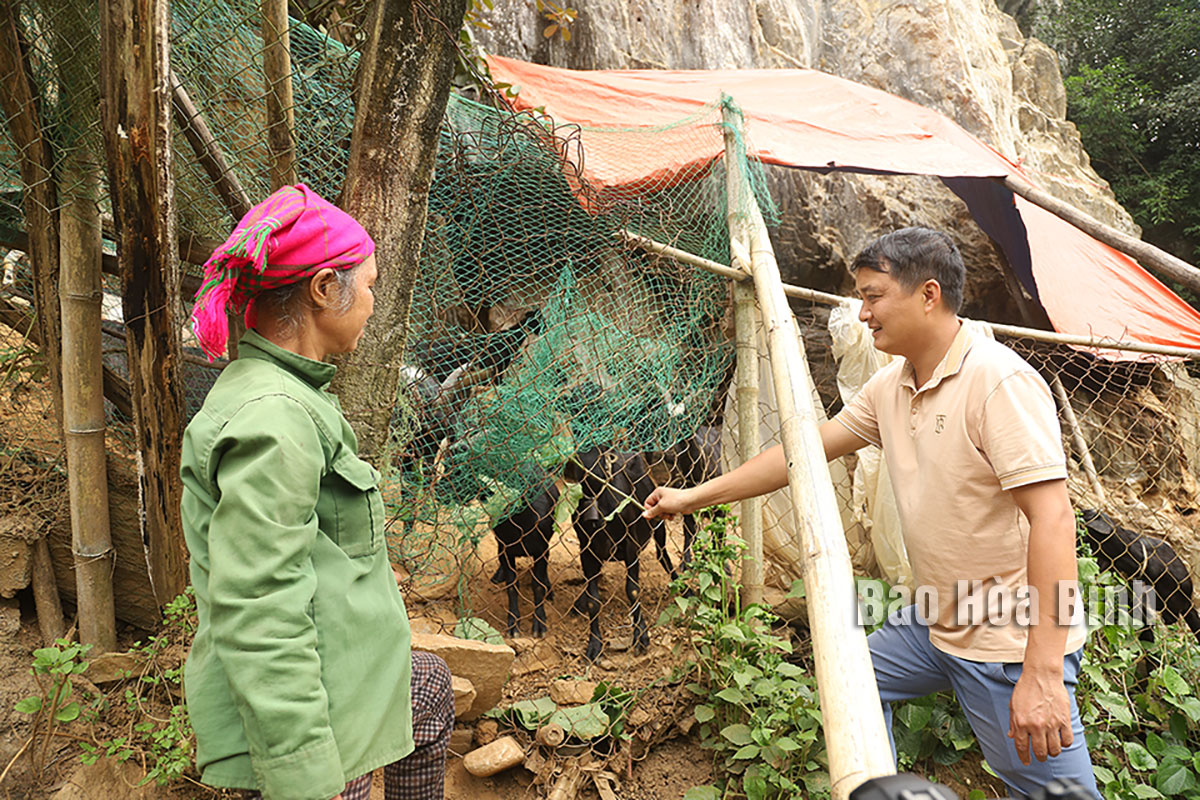



Goat farming model in Rang hamlet, Cao Son commune, Da Bac district helps boost income and reduces poverty in the locality.
Dinh Van Bang in Cao Son commune has used innovative approaches, such as utilising rocky cliffs for shelters and semi-grazing methods to reduce costs. His herd of over 20 goats, mainly breeders, yields approximately 30 goats annually, generating an income of over 80 million VND (3,150 USD).
He noted that goat farming is a profitable and stable alternative to raising pigs or chickens, with natural feed available in the area.
In Tu Ly commune, nearly 600 goats are raised by 97 households using similar semi-grazing methods. Several families report steady incomes of 50–100 million VND annually. Across the district, goat farming thrives with a total herd size of 8,500, surpassing the planned target.
Local authorities actively support this initiative. The provincial Department of Agriculture and Rural Development promotes the model through awareness campaigns, financial aid for breeding stock, and technical training. Efforts also focus on ensuring food safety standards, improving product quality, and expanding market access through online promotion.
Bui Khac Vinh, head of the department, highlighted goat farming as an ideal fit for the locality’s natural conditions, adding future plans emphasise disease prevention, hygiene, and resource mobilisation to sustain and roll out the model on a larger scale.